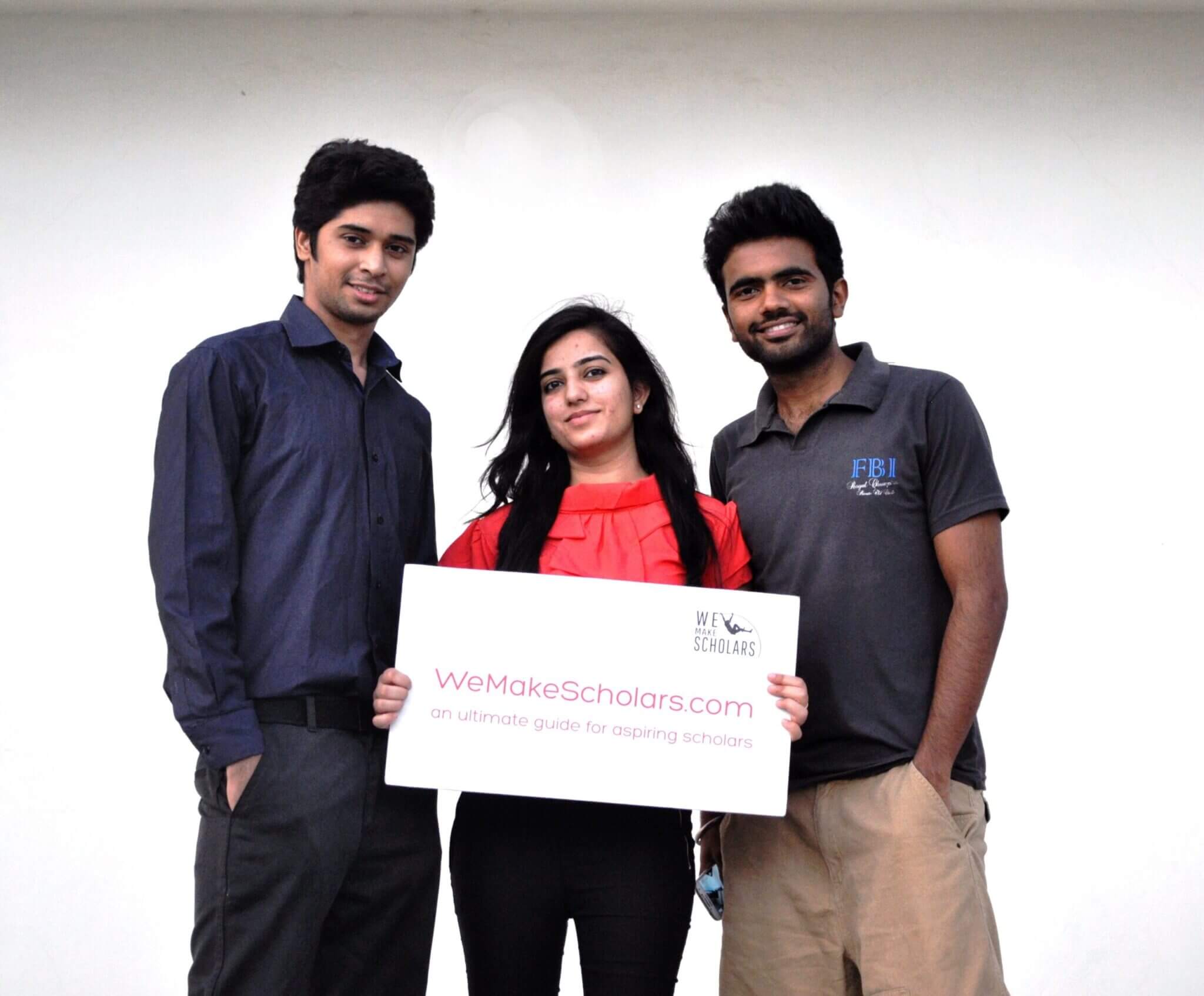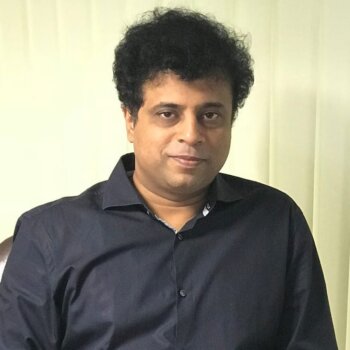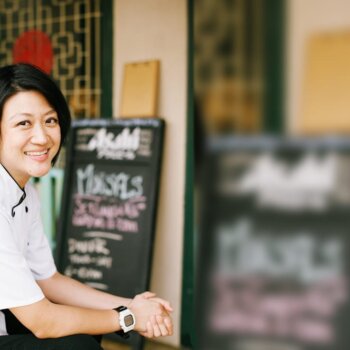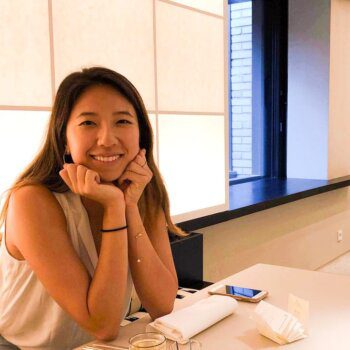Damini Mahajan is the CEO and co-founder of WeMakeScholars Edtech Pvt. Ltd. She is a true passionate entrepreneur who believes in possibilities and bringing out rational outcomes to any idea and never considers any purpose or challenge to be something impossible to achieve.
Damini is one of the board directors of Naturlich Global Beverages Pvt. Ltd (NGB). NGB is a beverage technology company which manufactures functional health beverages. The overall mindset and leadership qualities in her has always steered the progressive achievements of NGB. Under her guidance, NGB came up with an innovative formulation and process technology for a health drink which was recognised as one of the most innovative technologies by BIRAC, GOI and was awarded a 5 million INR grant under BIG scheme.
Damini is an alumnus of the University of Sheffield (UoS), UK where she pursued MS in Bioprocess Engineering. She was awarded “Developing Solutions Scholarship” for her excellent academic merits. During that period of time, she led the UoS team in the ABInBev Best beer competition 2013 and majorly contributed in product formulations and marketing concepts. Her team won the title of “Best Beer” in European grand finale. These experiences and broader outlook within the industry polished her skills to take up the position of COO in NGB.
When the idea of WeMakeScholars found substantial growth surface, she was the most appropriate leader to take it ahead and has made it a global initiative today.
In your own words what is WMS?
WeMakeScholars.com (WMS) is an online study opportunities search and discovery platform providing information on scholarships, internships, courses, universities & educational service providers globally.
We are a 4 months old company, officially launched on 29th of April, 2015 by Dr. Shashi Tharoor, Ex-Under-Secretary General of United Nations. In this short time, we have established ourselves in the global marketspace with users from 196 nationalities and team consisting of 9 nationalities. We have reached close to 2 million pageviews and 200K+ unique visitors.
The growth of our portal accelerated due to the fact that students couldn’t find a single place where opportunities like scholarships, internships, courses, universities are accessible via smart sorting based on the user preferences.
How did you come up with the idea of WMS?
The idea of WeMakeScholars was born in Sheffield, UK- 2 years ago. The struggle of me and my co-founder Arjun, to go through so many official websites to find reliable scholarship information, made us start this. Arjun received the prestigious UK Govt. & British council Queen’s Jubilee Scholarship which fully funded his studies, including everything from visa costs, to airfare, tuition fees, and a monthly stipend for living expenses. I was recipient of “Developing Solutions Master’s Scholarship” which covered 50 % of my tuition fee. In UK, when our classmates came to know about these scholarships, they were speechless as most of them never knew if any such opportunities existed. Interestingly, an online survey conducted by the WMS team, among 1576 students globally showed that about 83% of them didn’t know about scholarship opportunities they can apply for. This is due to the unavailability of an appropriate information platform
This was when we started an online community to fill the gap between available opportunities and students knowing about it.
Could you walk us through the process of starting up WMS?
As I mentioned, after Arjun and me won scholarship for our studies in the UK, we started an online scholarships community to help our juniors with the upcoming scholarships information. But the community grew exponentially to 160K and we used to get minimum 20-25 queries everyday. We did a feedback session on the group and all of our users requested us to build a website to keep the scholarships data organised. Hence, we started WeMakeScholars.com.
Did you encounter any particular difficulties during startup?
As we both the founders were from non-IT background, we faced many issues in building the technical team and giving life to the WMS portal. We worked with some freelancers initially which turned out to be a very bad experience for us and we wasted a lot of time in this process. Finally, we gave contract to a web solutions company to build the project. Once, we had MVP ready, we opened the full-time software developer positions and hired 3 tech guys.
How have you been developing WMS since startup?
We launched with Scholarships and internships information as salient features and have more than 4000 opportunities listed. Our aim is to build the world’s largest scholarship database with over $1 billion in total available funding, benefiting millions of aspiring scholars esp. from developing countries
Very soon we are launching an interface for courses and university. This will create a new horizon in our platform. Currently, there are no website worldover providing a wiki of all courses and universities hosted at a single place. This newly defined area would be apt with the latest technologies and machine learning integration to define a user with customised option. Further to this the whole information would be simplified for the user with our effective UI modelling and apps delivering the right solution to our student traffic.
With this our mission is to create a platform which provides a one stop solution for students looking for international higher education resources globally.
What kind of feedback did you get for WMS so far?
WeMakeScholars is an initiative which is loved by many across the globe. Everyday we receive around 5-10 applications from people of various nationalities who wants to volunteer for WMS from their region and join the team. This motivates us everyday when we receive such messages “ WeMakeScholars, please come to Philippines” a message from a student in need at Philippines, had an essence of faith our users have in us.
What is your strategy against your competition?
We do have some competitors which are player in their national markets and their database of scholarships, courses or universities is only for a particular target market such as ‘Chegg’ for US nationals, ‘EasyUni’ for malaysia, indonesia and thailand, ‘Shiksha’ for India but there is no platform which provides this information for the global audience.
Our motto of “Most reliable and transparent information” is our strategy against our competitors. None of the scholarship or course finder has as genuine and easy to find data as we have.
Have you developed any industry insights that you could share?
In the international education domain, there are many websites to provide information but no one is focussing on the quality of data. There are issues like incomplete data, wrong information or biased listing. This industry is thriving for a single platform which students can trust upon.
What is the future of the industry and how do you plan to stay relevant in this industry?
It is a growing market with about 1 million students just from India and China choosing to study degree programs abroad every year. In India, the number has grown by 25 % in last 3 years. We have planned our next 5 years in a way to cater the needs of this big enough market.
Were there anything that disappointed you initially?
Bureaucracy in every section in India is really disappointing. Even for basic registrations and all we had to go to 10 doors. When we were looking to partner with some universities, we understood that even private or deemed universities are not different from a govt. office where a file goes from one hand to another and so on before getting approval.
What do you think about being an entrepreneur in Asia?
For an entrepreneur, there are challenges everywhere- be it Asia or west. In India, it becomes quite hard just because of family pressure. Especially for girls, work hours of 15 hours a day or coming home late in the evenings, is not acceptable. And on top of that, we face issues like Marriage (which Indian parents consider as the ultimate goal of life)
What is your opinion on Asian entrepreneurship vs Western entrepreneurship?
In Asia, many investors usually look for ideas which already had a success story in the west. By this way, Asian entrepreneurship is mostly a follower of Western entrepreneurship. So, I feel new innovative ideas are not much encouraged in Asia.
What is your definition of success?
For WeMakeScholars, the success is when we realise that our work is helping millions of people around the globe.
At personal level, I believe Success is relative. It is the length of the path you travelled. I measure success as journey from where we started and where we reached. You cannot say if X is successful or Y is not, considering their present position, their success can only be measure if you know from where X or Y has started and how far they have come on their way.
Why did you decide to become an entrepreneur?
Entrepreneurship gives me a new challenge everyday and it gives a lot of satisfaction when I overtake that challenge. I would not have confronted these challenges in a regular job. Life is all about learning everyday, every moment and from everyone and if you tie yourself inside a cubicle, you are never going to learn as many new things as an entrepreneur.
In your opinion, what are the keys to entrepreneurial success?
Perseverance, Perseverance and Perseverance!
You are going to fall 100 times during this journey. But, you will succeed only if you get up every time and start walking again. Many people stop even at the 99th fall but a true entrepreneur won’t stop until he makes it happen.
Any parting words of wisdom for entrepreneurs out there from your personal experience?
Your fear is the only thing that can stop you, overcome it.
Connect
http://www.wemakescholars.com/
https://www.facebook.com/wemakescholars
https://plus.google.com/+Wemakescholars
https://www.linkedin.com/company/3710426





























